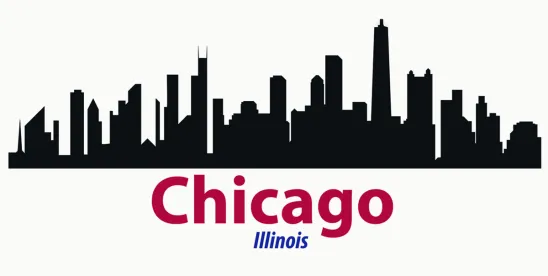Chicago’s Central Business District’s (CBD) current market presents unique opportunities for both building owners and prospective buyers. According to CBRE data, Chicago’s CBD recorded its first quarter of net positive absorption since 2023 in Q1 of this year. However, this record was short-lived as the Q2 data shows that the CBD recorded over 250,000 square feet of net negative absorption. Despite the return to negative absorption, leasing activity remained strong.
In the Central Loop submarket, notable lease transactions in Q1 include leases 222 N. LaSalle Street to tenant NinjaTrader Group, 1 N. Dearborn Street to tenant Start Early and 141 W. Jackson Boulevard to tenant Impact for Equity. In Q2, JP Morgan Chase signed a renewal/expansion lease at 131 S. Dearborn Street and Legal Aid Chicago signed a new lease at 200 N. LaSalle Street. Chicago’s market echoes that of the national market in that small leases, ranging from 10,000 to 20,000 square feet, accounted for approximately half of all transactions.
Within Chicago’s CBD, office properties outside of the Central Loop have shown comparatively stronger performance. The net positive absorption recorded in Q1 was driven heavily by the addition of 517,000 square feet in the West Loop. The West Loop and River North accounted for 66.7% of new leasing in Q1, bolstered by two key sale transactions, 600 W. Chicago Avenue and 200 S. Wacker Drive, both located in these submarkets. The West Loop submarket was the most active in Q2 as well, comprising 52% of all leasing activity.
While we are not yet back to pre-pandemic figures, the market has shown encouraging signs of recovery in the half-decade. As office demand remains challenged, vacancy rates in the CBD averaged as high as 26.4% in Q1 of 2025, considerably higher than the 10.8% rate observed in 2018. Q2 leasing volume totaled 1.4 million square feet for leases over 10,000 square feet, reflecting year-over-year stability, yet still just half the volume seen in pre-pandemic years. Similarly, sales volume has declined by nearly 65% compared to pre-pandemic levels, according to Avison Young data. Nonetheless, the CBD has experienced positive growth over the past six quarters, driven largely by private investors.
As of Q2, the sole building under construction is 919 W. Fulton Street in the Far West Loop. While the CBD construction pipeline remains considerably lower than its pre-pandemic peak of 4 million square feet in 2016, there is increasing activity year-over-year. For context, only two office properties were delivered within the CBD throughout the whole of 2024: 311 W. Huron Street and 360 N. Green Street, totaling 637,000 square feet. Several second-generation buildings are undergoing renovation projects. Notably, The Bell at 225 W. Randolph underwent a $150 million redevelopment, adding 850,000 square feet to the CBD.
Class A availability is becoming increasingly scarce. Over the past year, direct vacancy for Class A properties rose by nearly 80 basis points, while lower-tier Class B and C space rose nearly 3 percentage points in the same period. As of Q1, highly-amenitized trophy properties accounted for just 6% of the total direct space marketed in the CBD. Despite the recent addition of The Bell, a shortage of top-tier property will continue to loom unless new developments move forward.
Capital markets activity has remained slow but exhibits signs of stability. In Q1, only two buildings sold for over $10 million: 200 S. Wacker for $68 million and 600 W. Chicago for $88.7 million. Luckily for buyers, slow capital markets activity means discounted building purchases. For example, 3Edgwood recently purchased 600 W. Chicago, once the historic Montgomery Ward catalog building, at an 82% discount compared to the building’s prior purchase in 2018. Additionally, Kohan Retail Investment Group, based out of Long Island, purchased 311 S. Wacker for $45 million, approximately 85% less than it sold for a decade ago.
As the landscape continues to evolve, Chicago’s CBD presents distinct opportunities that could reshape strategies for owners and buyers alike. The combination of limited construction activity and significant demand for top quality spaces has created a noticeable void in the market, driving down building sale prices and potentially catalyzing much-needed new development.
Chicago’s office market has witnessed signs of life but still faces many challenges.




 />i
/>i
